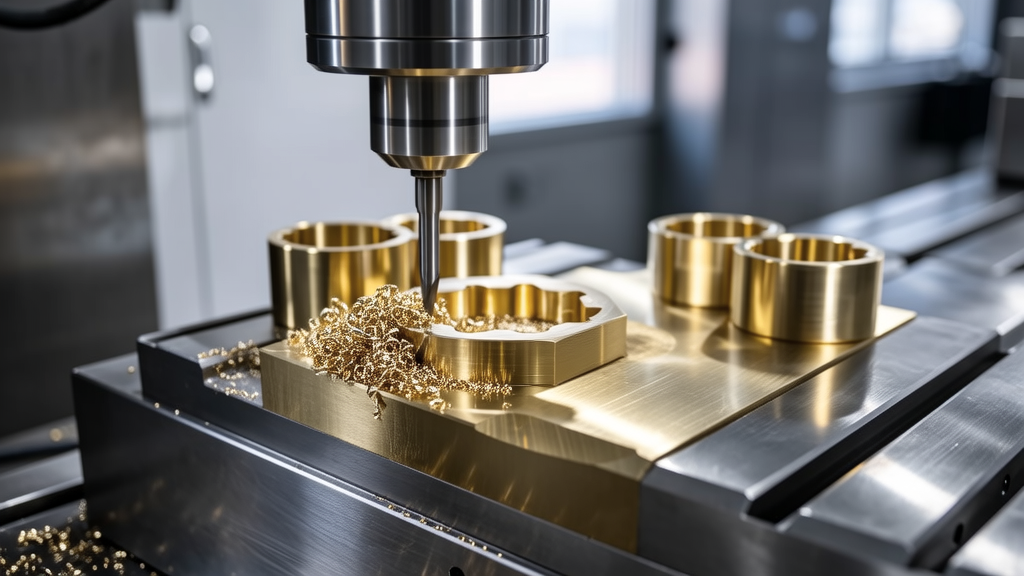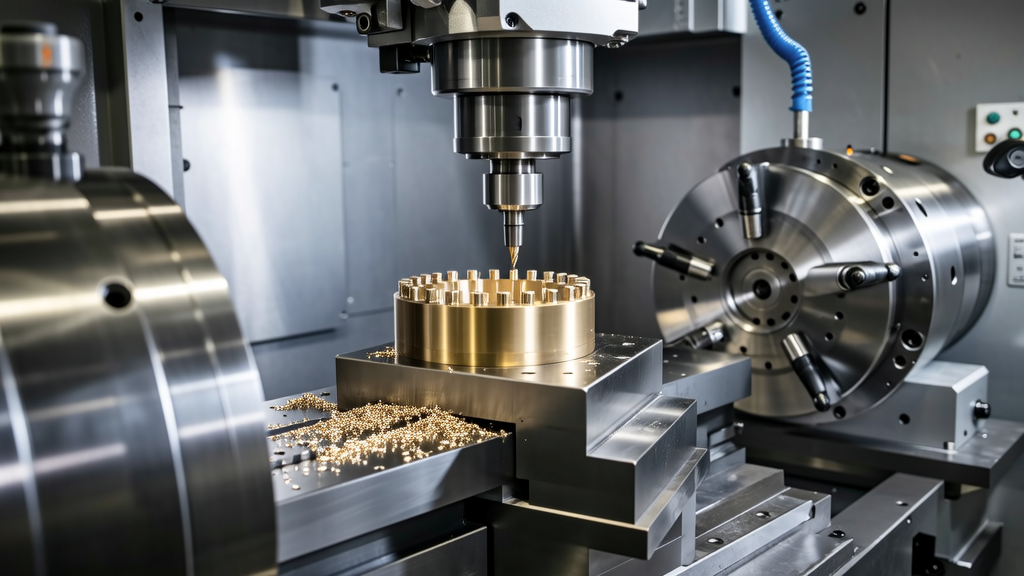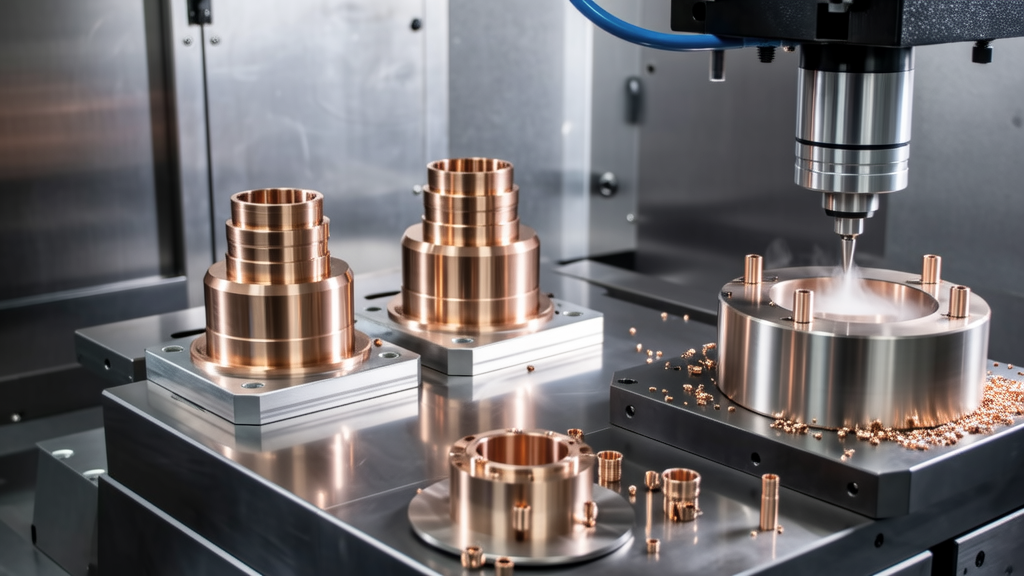Understanding Your Needs
Before you even start looking for manufacturers, it’s vital to understand what you specifically need. Factors like component size, tolerance levels, and production volumes play a significant role in your choice. If you’re looking for intricate designs, for instance, you’ll require a manufacturer with advanced technology and skilled personnel. As I’ve experienced with previous clients, investing time upfront to clarify these specifications makes the selection process far smoother.
Having a well-defined project scope allows you to put potential manufacturers through a rigorous filtering process. You don’t want to waste time talking to companies that cannot meet your demands. I recommend creating a checklist of your requirements that includes:
Evaluating Manufacturer Capabilities
Now that you’ve outlined your needs, it’s time to evaluate potential manufacturers. Look for businesses that have invested in state-of-the-art machinery tailored for brass CNC machining. Often, a company’s reputation can also hint at its capabilities. Check online reviews and ask for case studies where they’ve successfully delivered parts that are similar to your needs.
A trustworthy manufacturer will openly share their equipment capabilities, experience, and qualifications. I once helped a friend source components for a startup; their initial shortlist included a firm with outdated machines, which led to complications down the road. Always prioritize companies that demonstrate they keep up with industry advancements.
Quality Assurance Processes
Quality control is one area where you shouldn’t compromise. A reliable brass CNC machining manufacturer should have strict quality assurance processes in place. Look for details on how they maintain quality in their production processes. Regular inspections and precise documentation should be standard procedures.
In my experience, manufacturers that have well-defined protocols and certifications are likely to provide you with the quality you need. For example, ISO 9001 certification indicates that they adhere to international quality standards.
Cost Analysis
Cost is always a critical factor but don’t let the price alone dictate your decision. Sometimes, lower costs equate to lower quality, which can end up costing you more in the long run through rework or delays.
When analyzing costs, consider the complete picture, which includes the price per unit, shipping costs, and potential post-production costs (such as finishing processes). You may want to request quotes from multiple manufacturers to gain a comprehensive understanding of market rates. Make sure to ask them for a breakdown of their estimates to see where costs arise.

Risk Mitigation Strategies
Once you narrow down your options, it’s essential to consider risk management. Ensure that the manufacturer has a solid plan in place for dealing with unforeseen issues like supply chain disruptions or equipment failures. A reliable partner should have contingency plans.
Ask potential manufacturers about their past experiences with risks and resolutions. I remember collaborating with a supplier who faced unexpected machine downtime. They had contingency plans that helped them stay on schedule, giving me confidence in their reliability.
Tips for Effective Communication
Lastly, consistent and effective communication is a keystone to your successful working relationship with a brass CNC machining manufacturer. During the initial conversations, gauge their responsiveness and willingness to answer your specific questions. Lack of communication can be a red flag.
Being as specific as possible in your inquiries can prevent misunderstandings later. I’ve seen projects derailed by unclear communication, further emphasizing the need for a robust dialogue.
Simplified Evaluation Table
Here’s a simple table to help you simplify your evaluation process:
| Manufacturer | Certifications | Equipment Age | Response Time | Cost Estimate |
|---|---|---|---|---|
| Example Corp | ISO 9001 | 3 years | 24 hours | $XXX per unit |
| ABC Machining | ISO 9001, AS9100 | 1 year | 12 hours | $YYY per unit |
Keep these elements in mind as you search for a brass CNC machining manufacturer. This structured approach, based on my personal experience, can guide you in choosing a partner who not only meets your technical requirements but also becomes a trusted collaborator in your business endeavors. If you have tried these techniques or have more questions, I encourage you to share your experience!
What should I consider when defining my needs?
Start by clearly outlining your specifications, such as component size and tolerance levels. These details significantly influence your choice of manufacturer. If you’re after precise parts, it’s crucial to specify the tolerances you require, like +/

Also, think about the production volume you’ll need. Whether it’s short runs of 100 pieces or large-scale orders of thousands, your volume will guide which manufacturers are suitable.
How can I evaluate a manufacturer’s capabilities effectively?
Look into their equipment and technology first. A reputable manufacturer should openly discuss their machinery and what it’s capable of. You might want to ask for specific examples of previous projects similar to yours to assess their experience.
It’s also helpful to check their certifications, such as ISO 9001 or AS9100, as these indicate a commitment to quality standards. Engaging with them directly can give you a sense of their responsiveness and willingness to meet your needs.
What factors should I include in my cost analysis?
When evaluating costs, consider not only the price per unit but also additional expenses like shipping and potential post-production processes such as finishing. Gathering quotes is essential, and I suggest getting at least three to compare effectively.
Remember, the lowest price isn’t always the best option. Sometimes, a reasonable higher price can lead to better quality and service in the long run.
What are some effective risk mitigation strategies?
It’s essential to ensure that your chosen manufacturer has robust contingency plans in case of unforeseen issues. Ask potential manufacturers about their experience with past disruptions and how they handled them.
You can also look for manufacturers who have backup equipment or alternative production options to minimize risks associated with downtime.
How do I maintain effective communication with my chosen manufacturer?
Establish clear lines of communication from the start. Being specific in your inquiries not only streamlines the process but also helps establish trust. Regular updates throughout the manufacturing process can prevent misunderstandings down the line.
If at any point you feel that communication is lacking, don’t hesitate to bring it up. A good manufacturer will appreciate your proactive approach and work to improve that dialogue.



